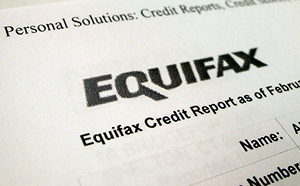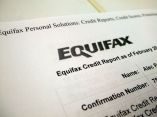The legal system has long taken a “no harm, no foul” approach to certain legal disputes: If you haven’t actually been injured by the other party’s actions, you’ll have a hard time convincing the court that your lawsuit shouldn’t be thrown out. But the internet, where incorrect information can be disseminated globally within seconds (and may never truly be erased), is causing courts to reconsider the question: When can you sue a company for an intangible harm? [More]
fcra

Why You Should Care About This Lawsuit Against A Data Company You’ve Probably Never Heard Of

Comcast Customer Says Company Pulled Credit Report Even After He Paid It Not To
When a Chicago man recently contacted Comcast to set up a new broadband account, he was told the company would have to run a credit check — or he could pay a $50 deposit to waive that requirement. But the customer claims that Comcast went ahead and pulled his credit anyway, which is why he’s now suing the nation’s largest consumer broadband provider. [More]

Credit Report Wrongly Says Man Is Convicted Felon, Forces Him To Prove Innocence
How do you prove you didn’t commit a crime if your accuser won’t tell you which crime you’ve been accused of committing? That’s the problem facing a New Jersey who has spent months trying to convince a shady credit reporting company that he is not the criminal that is showing up in their records. [More]

FTC Sends Warning Letters To 10 Data Brokers
While it often seems like information brokers can and do sell whatever data they can collect to anyone willing to pay, there are regulations in place regarding the sale of certain types of personal information. Following a test to see how well brokers were adhering to these rules, the Federal Trade Commission has issued warning letters to 10 data brokers who appeared willing to sell consumer information without abiding by standards set forth in the Fair Credit Reporting Act. [More]

"Help, Equifax Won't Give Me My Credit Report!"
A reader just had his credit limit lowered on a credit card due to some bad credit history that he says isn’t his. He’d like to see what’s going on with his credit report, but Equifax says he’ll have to pay for the privilege, because they have no record of any inquiries in the past 60 days. The reader asks, “Has this happened to anyone else, where a credit card company waited over 60 days to notify them of credit limit reductions? Also, does this violate the FCRA?” [More]

Legal Uses of Your Credit Report
Once upon a time, credit reports were used only for credit. Now, companies use it for a lot of decisions. Find out what is legal and what is not.

